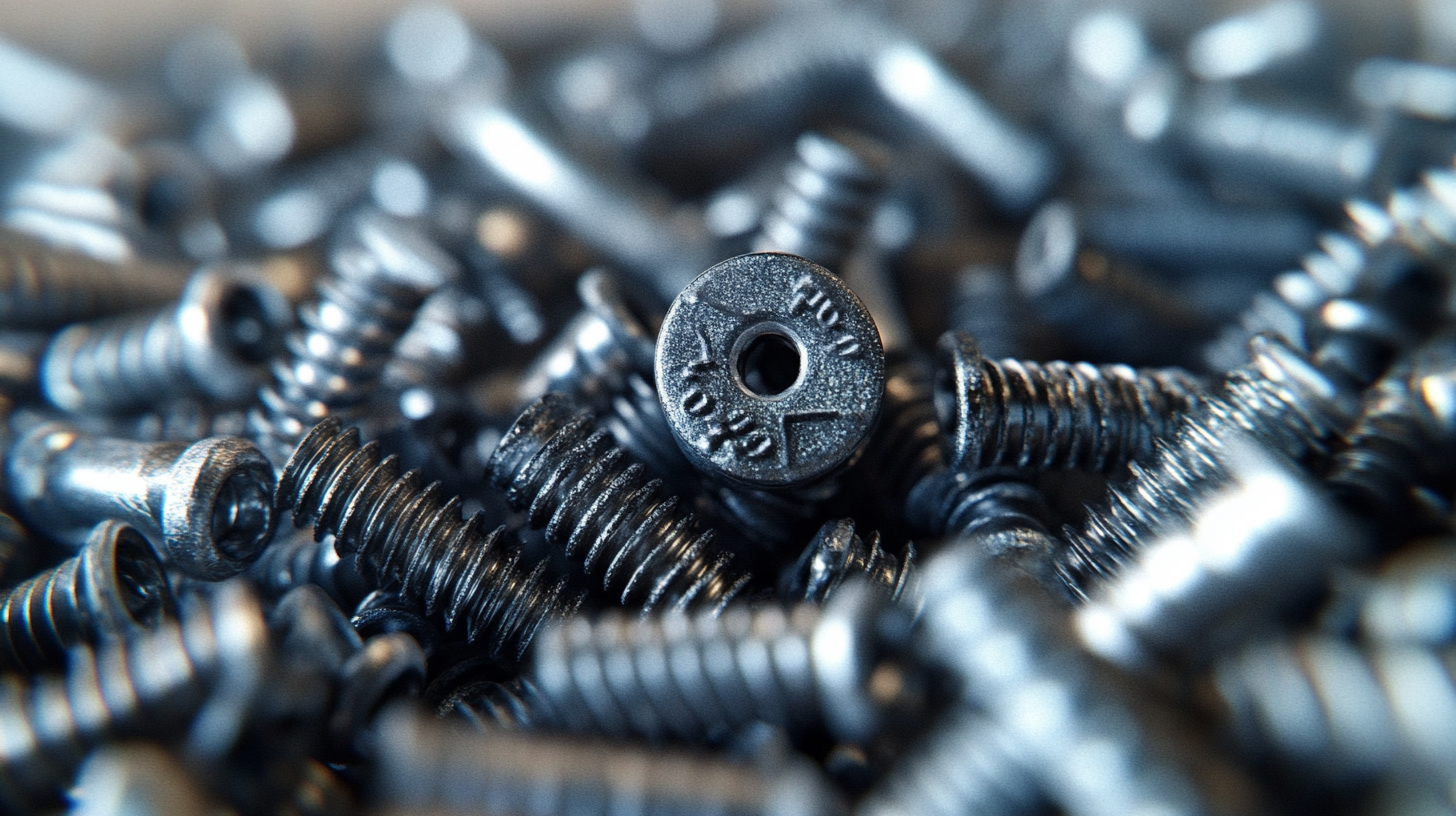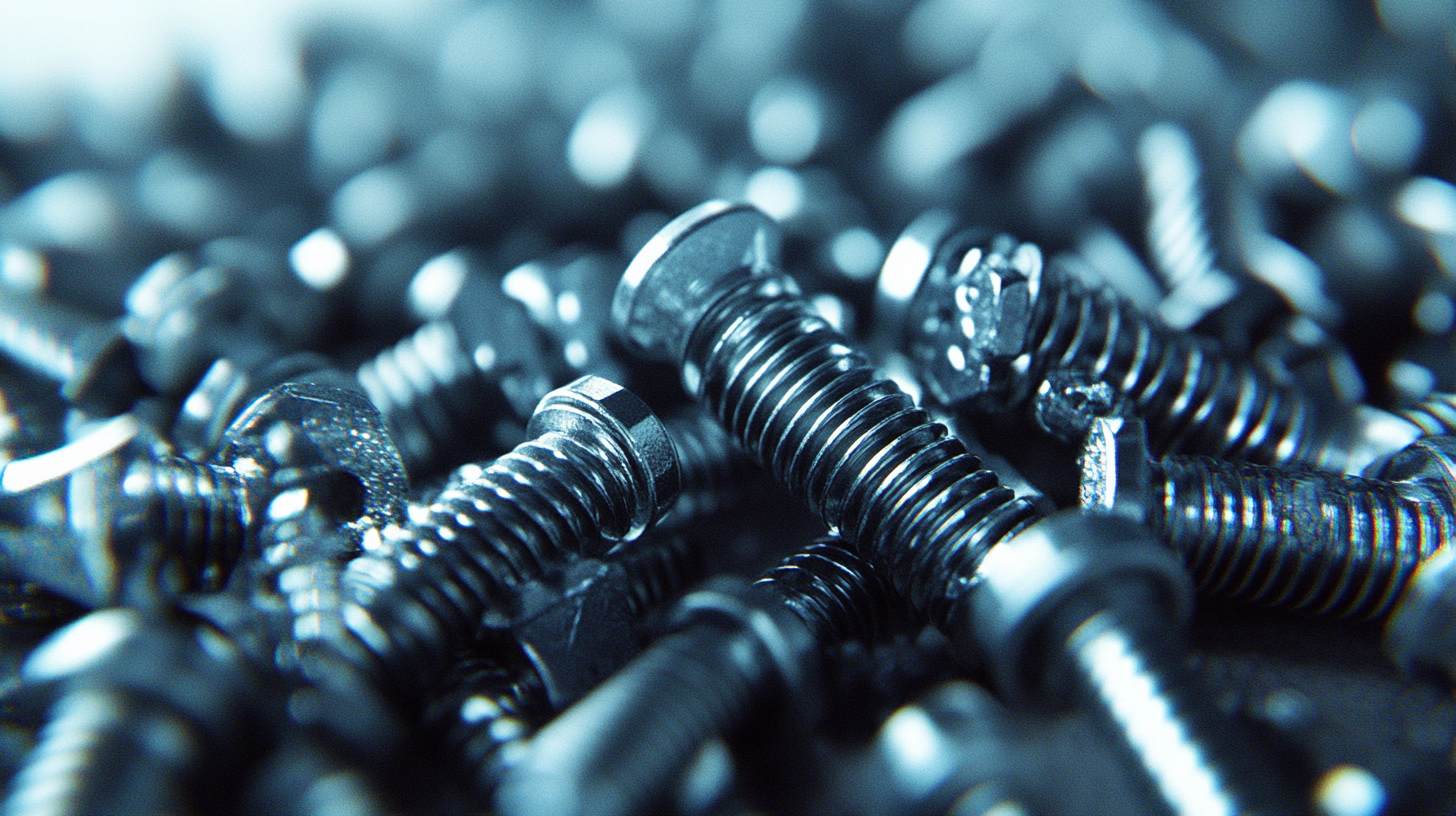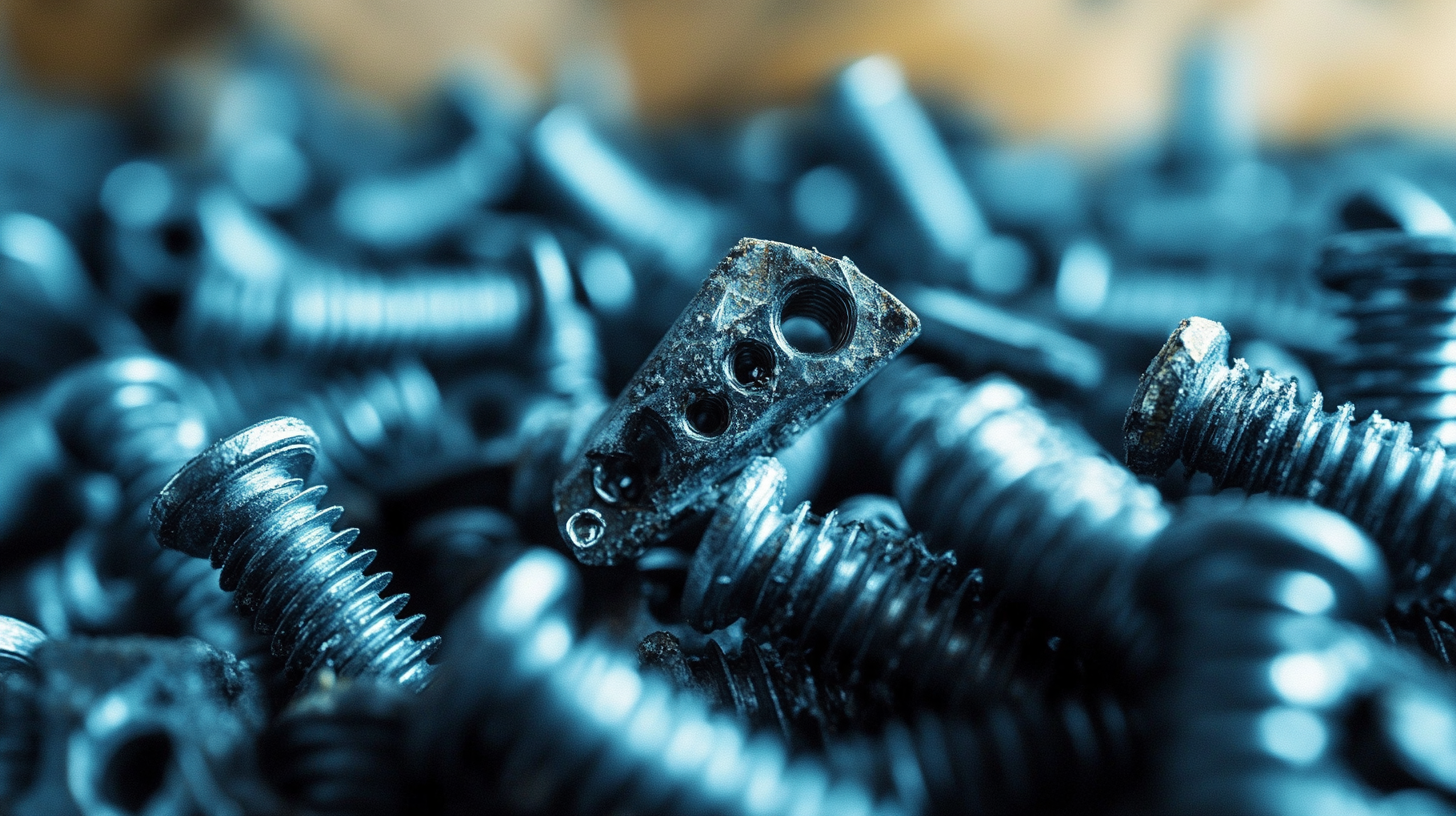
Leading the World in Self Drilling Screws Manufacturing for Global Export Success
In today's competitive global market, selecting the right manufacturer for Self-Drilling Screws is crucial for ensuring quality and performance in your projects. As these screws continue to gain popularity due to their ability to create their own hole while being fastened, the demand for high-quality products has surged. However, not all manufacturers uphold the same standards, and navigating through various options can be challenging for businesses aiming for export success. This blog will provide key insights into essential criteria for evaluating potential manufacturers, focusing on their production capabilities, certifications, and track record in the industry. By understanding these factors, companies can make informed decisions that will lead to superior products and sustainable growth in the global market.

Current Trends in Global Self Drilling Screws Market: Key Growth Drivers and Challenges
The global self-drilling screws market is witnessing significant growth, driven by key trends and emerging challenges. As industries continue to adopt advanced construction techniques and prioritize efficiency, the demand for self-drilling screws is on the rise. These screws eliminate the need for pre-drilling, reducing installation time and labor costs, making them highly desirable in both residential and commercial construction projects. The ongoing trend towards automation and innovative fastening solutions also plays a critical role in propelling this market forward.
However, the industry faces several challenges that demand careful navigation. Global supply chain disruptions and fluctuating raw material costs pose risks to manufacturers and can lead to pricing instability. Additionally, increasing environmental regulations are encouraging companies to explore eco-friendly materials and sustainable manufacturing processes. Adapting to these demands while maintaining product quality will be essential for market leaders aiming to sustain their competitive edge in this evolving landscape. As the sector progresses, both established players and new entrants must innovate continuously to meet changing market dynamics.

Projected Market Growth: Forecasting the Self Drilling Screws Industry by 2025
The self-drilling screws industry is poised for significant growth, driven by increasing construction activities and the rising demand for fast and efficient fastening solutions. According to a comprehensive market analysis, the global metal cutting machine market is projected to reach USD 10.86 billion by 2033, boasting a compound annual growth rate (CAGR) of 6.24%. This growth trajectory highlights the escalating need for advanced manufacturing techniques and tools that are crucial for producing high-quality self-drilling screws.
As the world leaders in self-drilling screws manufacturing, companies must stay ahead of industry trends to leverage export opportunities effectively. The anticipated expansion of the metal cutting machine market indicates that manufacturers can enhance their production capabilities and innovation, meeting the demand for precision and performance in screw manufacturing. The sector is not only benefiting from the surge in global construction but also from technological advancements, which are reshaping the competitive landscape. As forecasted growth continues, businesses must strategically position themselves to capitalize on these trends and remain at the forefront of the industry.
Technological Innovations Shaping Self Drilling Screws Manufacturing and Performance
Technological innovations are transforming the landscape of self-drilling screws manufacturing, making it essential for manufacturers to adapt and thrive in a competitive global market. The introduction of self-piercing technology has revolutionized fastening processes, significantly enhancing efficiency by eliminating the need for pre-drilled holes. This advancement allows for faster assembly times and reduced labor costs, especially evident in industries like automotive and construction, where timing and precision are critical.
As the Body in White (BIW) design for Electric Vehicles (EVs) evolves, the demand for high-performance fasteners has surged. Manufacturers must focus on achieving optimal material properties while ensuring that their fastening solutions meet the rigorous performance standards required for lightweight materials commonly used in EVs. Tips for manufacturers include investing in R&D to explore new materials and designs that enhance screw performance and embracing digital transformation to streamline production processes.
Moreover, sustainable manufacturing practices are gaining traction in the fastener industry. Leveraging laser-based technologies and intelligent manufacturing techniques not only optimizes production efficiency but also aligns with global sustainability goals. By adopting these innovations, manufacturers can position themselves for future growth while meeting the increasing demand for environmentally friendly products.
Technological Innovations in Self Drilling Screws Manufacturing
Strategic Export Opportunities: Analyzing Key Markets for Self Drilling Screws
In today's competitive marketplace, self drilling screws have emerged as crucial components across various industries, ranging from construction to automotive. Analyzing key markets for these innovative fasteners reveals a wealth of strategic export opportunities. Emerging economies in Southeast Asia, like Vietnam and Indonesia, show a rapid growth in infrastructure projects and manufacturing capabilities. This surge increases demand for quality self drilling screws, presenting an ideal entry point for manufacturers looking to expand their global reach.

Additionally, the rise of e-commerce has transformed how these products are distributed worldwide. Online platforms facilitate direct access to consumers and businesses alike, creating a seamless path for manufacturers to engage with new markets. Countries in Europe and North America continue to prioritize sustainability and efficiency, further amplifying the need for reliable self drilling solutions. By leveraging these trends, manufacturers can strategically position themselves to capture significant market share and drive export success, fostering innovative partnerships that adapt to evolving demands.
Sustainability and Compliance in Self Drilling Screws Production: Meeting Global Standards
Sustainability has become a crucial factor in the manufacturing of self-drilling screws, particularly as global standards continue to evolve. As the screws market expands significantly, driven by various end-use industries like construction, there's an increasing demand for environmentally friendly production processes. Manufacturers are adopting sustainable practices by utilizing recycled materials and ensuring that their manufacturing processes minimize waste. This not only helps meet compliance standards but also appeals to a growing segment of eco-conscious consumers and businesses.
Furthermore, compliance with international regulations is essential for companies looking to establish themselves in the global marketplace. By adhering to stringent quality and safety standards, manufacturers can ensure that their products not only meet customer expectations but also contribute positively to the industry's overall sustainability goals. The commitment to sustainability and compliance not only enhances brand reputation but also drives innovation, resulting in better product offerings that align with current market demands and future trends. As the screws market progresses, staying ahead in these areas will be vital for long-term success and competitiveness.
